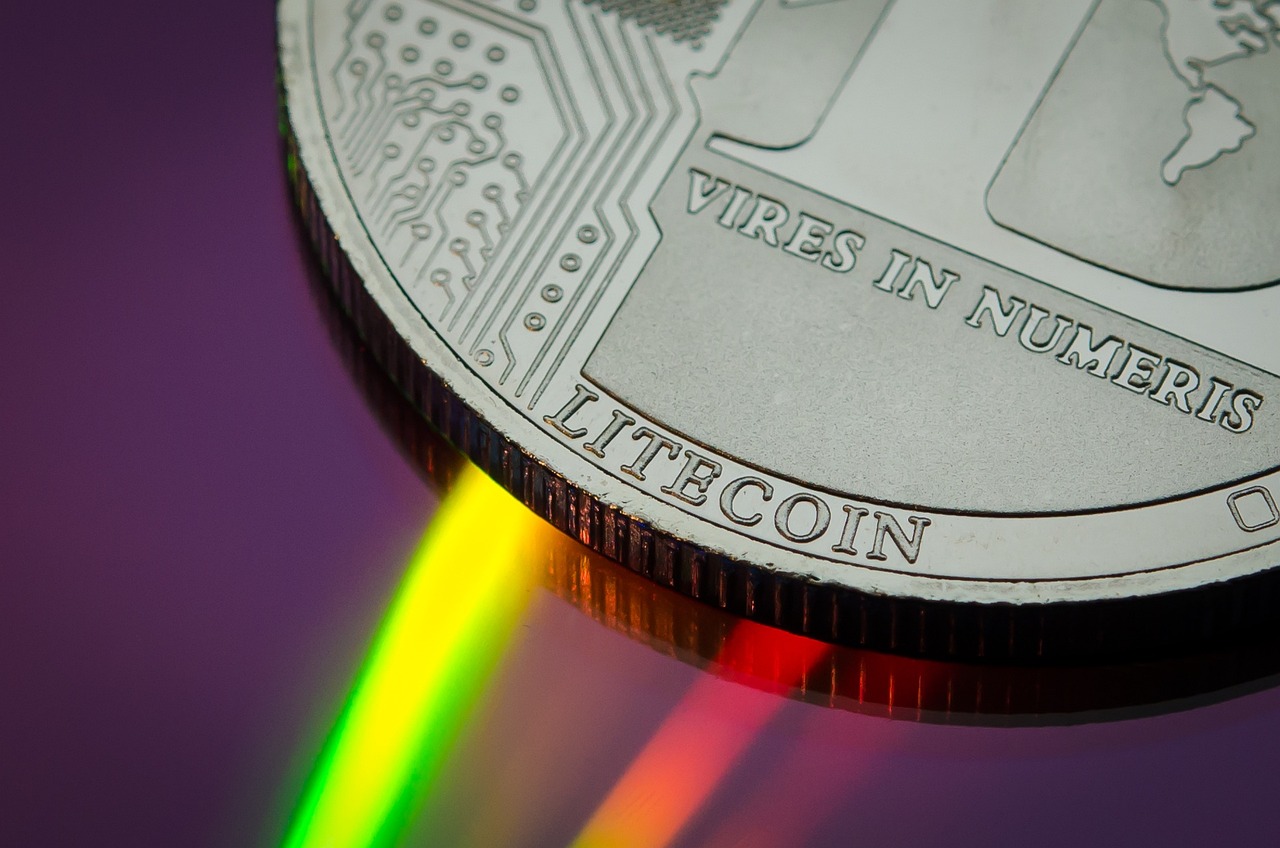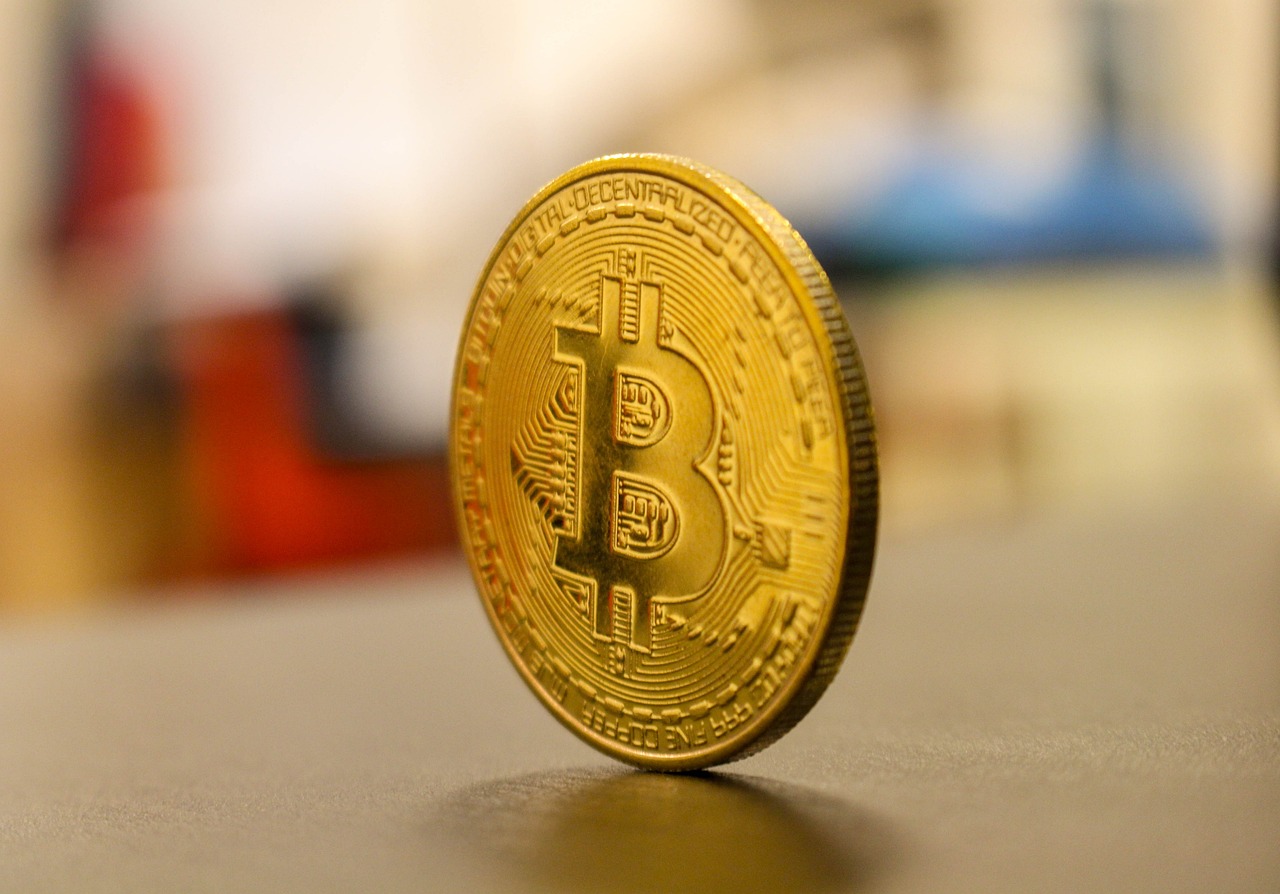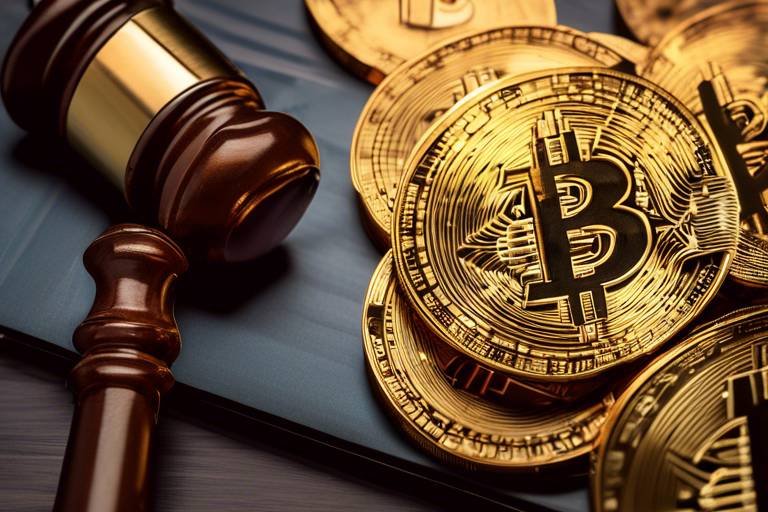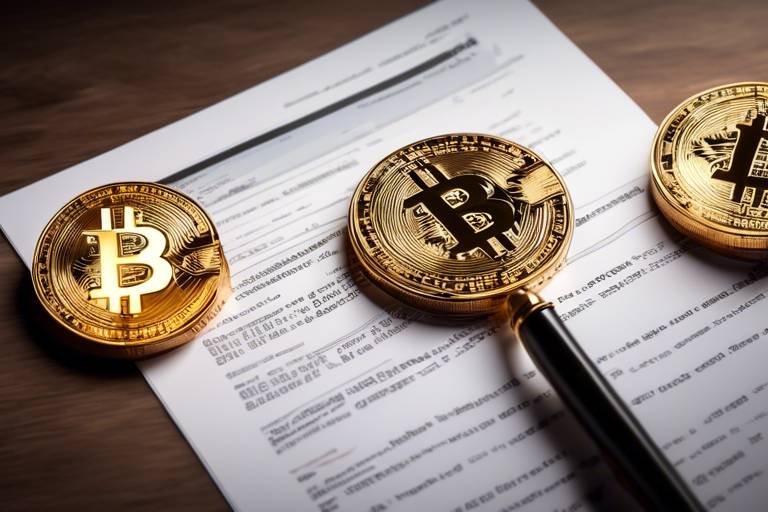How to Handle Legal Disputes in Cryptocurrency Trading
In the fast-paced world of cryptocurrency trading, navigating legal disputes can feel like walking through a minefield. With regulations constantly evolving and new technologies emerging, traders often find themselves caught in a web of challenges that can lead to significant financial loss and legal repercussions. So, how can one effectively handle these disputes? The answer lies in understanding the landscape of cryptocurrency regulations, recognizing common legal issues, and knowing the best practices for resolution.
First and foremost, it’s crucial to grasp the regulatory environment surrounding cryptocurrencies. Different countries have varying laws that govern digital assets, and staying informed about these regulations can help traders avoid potential pitfalls. For instance, understanding the difference between securities and commodities can determine how a trader should operate within a specific jurisdiction. This knowledge not only protects traders but also empowers them to make informed decisions.
Now, let’s dive into some of the common legal issues that cryptocurrency traders may encounter. From fraud to contractual disputes, the landscape is fraught with potential challenges. One of the most alarming issues is the rise of scams, where traders can easily become victims of fraudulent schemes. It’s essential for traders to be vigilant and recognize the signs of fraud, which we’ll explore further in this article.
Moreover, contracts play a pivotal role in cryptocurrency trading. They establish the terms of agreements between parties, and any breach can lead to serious legal disputes. Understanding how to draft and enforce contracts can significantly reduce the risk of disputes arising. This is where knowledge of legal frameworks becomes invaluable, as it allows traders to navigate their agreements with confidence.
When disputes do arise, it’s important to know the various dispute resolution methods available. Mediation and arbitration are often preferred due to their efficiency and lower costs compared to traditional litigation. While mediation involves a neutral third party to facilitate a resolution, arbitration is more formal and may result in binding decisions. Understanding the pros and cons of each method can help traders choose the right path when faced with a dispute.
Finally, adopting best practices as a trader can significantly minimize legal risks. This includes maintaining proper documentation, ensuring compliance with local regulations, and fostering clear communication with trading partners. By taking proactive steps, traders can create a safer trading environment for themselves and their assets.
In summary, handling legal disputes in cryptocurrency trading requires a multifaceted approach. By understanding regulations, recognizing common legal issues, and employing effective dispute resolution methods, traders can navigate the complexities of the crypto landscape with greater ease. Now, let's take a closer look at some frequently asked questions regarding this topic.
- What are the most common legal issues in cryptocurrency trading? Common issues include fraud, contract breaches, and ownership disputes.
- How can I protect myself from cryptocurrency scams? Stay informed, recognize red flags, and conduct thorough research before investing.
- What should I do if I am a victim of cryptocurrency fraud? Report the incident to authorities and consider pursuing legal action against the perpetrators.
- What are the differences between mediation and arbitration? Mediation is a facilitated negotiation, while arbitration is a more formal process that results in a binding decision.
- How can I minimize legal risks in cryptocurrency trading? Maintain proper documentation, comply with regulations, and communicate clearly with your trading partners.

Understanding Cryptocurrency Regulations
In the fast-paced world of cryptocurrency trading, understanding regulations is crucial for every trader. With the rise of digital currencies, governments and regulatory bodies worldwide have scrambled to establish frameworks that ensure the safety and security of transactions. But what does this mean for you as a trader? It means navigating a complex landscape filled with laws and guidelines that can vary significantly from one jurisdiction to another. Ignoring these regulations can lead to dire consequences, including hefty fines or even jail time!
To grasp the regulatory environment, it's essential to recognize that cryptocurrencies are often treated differently depending on their classification. For example, some countries categorize them as securities, while others view them as commodities or currencies. This classification impacts how they are regulated. In the United States, for instance, the Securities and Exchange Commission (SEC) has taken a firm stance on cryptocurrencies that qualify as securities, enforcing strict compliance measures. On the other hand, the Commodity Futures Trading Commission (CFTC) oversees cryptocurrency futures and options trading, focusing on market integrity and consumer protection.
Moreover, international regulations can also complicate matters. Countries like China have outright banned cryptocurrency trading, while others, like Switzerland, have embraced it, creating a favorable environment for crypto businesses. This disparity means that as a trader, you must not only stay informed about local laws but also be aware of the international implications of your trades. For instance, if you’re trading on a platform based in a different country, understanding that country’s regulations is vital.
Here are some key regulations that every cryptocurrency trader should be aware of:
- Know Your Customer (KYC): Many exchanges require traders to verify their identity to prevent money laundering and fraud.
- Anti-Money Laundering (AML): Regulations aim to prevent illicit activities within the cryptocurrency space.
- Tax Regulations: Cryptocurrency is often subject to taxation, and traders must report gains and losses accurately.
As you can see, the regulatory landscape is not just a bureaucratic hurdle; it’s a critical aspect that can significantly impact your trading strategy. By staying informed and compliant, you can avoid potential pitfalls and focus on what you do best—trading!
In conclusion, navigating the world of cryptocurrency regulations may seem daunting, but with the right knowledge and resources, you can turn this challenge into an opportunity. Always remember to keep an eye on evolving regulations, as this space is continually changing. By doing so, you’ll not only protect yourself legally but also enhance your trading success.

Common Legal Issues in Cryptocurrency Trading
As the world of cryptocurrency continues to expand, so too does the complexity of legal issues that traders face. Navigating this digital frontier can feel like walking a tightrope without a safety net. It's crucial to understand the common legal disputes that may arise in cryptocurrency trading to protect yourself and your investments. From fraud to contract breaches, the landscape is riddled with potential pitfalls that can catch even the most seasoned traders off guard.
One of the most prevalent issues is fraud. With the anonymity that cryptocurrencies provide, scammers have found a fertile ground for their schemes. Traders must remain vigilant against various fraudulent activities such as Ponzi schemes, where returns are paid to earlier investors using the capital from newer investors, and phishing attacks, which aim to steal sensitive information through deceptive emails or websites. These scams can lead to devastating financial losses, making awareness and education essential for anyone entering the cryptocurrency market.
As we delve deeper into the realm of fraud, it's essential to recognize the different types of scams that plague the cryptocurrency space. For instance, Ponzi schemes often promise high returns with little risk, luring in unsuspecting investors. Similarly, phishing attacks can occur when scammers impersonate legitimate exchanges or wallets, tricking users into providing their login credentials. To safeguard against these threats, traders should always verify the legitimacy of a platform before investing and be wary of offers that seem too good to be true.
Traders should keep an eye out for certain red flags that may indicate potential fraud. Here are a few indicators to consider:
- Unrealistic promises of high returns with low risk.
- Lack of transparency regarding the company or individual behind the investment.
- Pressure tactics to invest quickly without sufficient research.
- Unusual payment methods that deviate from standard practices.
Recognizing these signs can help traders avoid falling victim to scams and protect their hard-earned money.
If a trader becomes a victim of fraud, it's important to know that options are available for seeking justice. Victims can report fraudulent activities to authorities such as the Federal Trade Commission (FTC) or the Securities and Exchange Commission (SEC) in the United States. Additionally, pursuing legal action against the perpetrators can be a viable option, although it often requires substantial evidence and may be a lengthy process. It's crucial for victims to document all communications and transactions related to the fraud to build a strong case.
Another common legal issue in cryptocurrency trading involves contractual disputes. As with any business transaction, agreements are often made between parties regarding the terms of trade. However, misunderstandings and breaches can lead to significant conflicts. For instance, if one party fails to deliver on their end of the bargain, it can result in financial loss and strained relationships. Understanding the importance of having clear and enforceable contracts can save traders from future headaches.
In conclusion, being aware of the common legal issues in cryptocurrency trading is the first step toward safeguarding your investments. By staying informed and proactive, traders can navigate this complex landscape with greater confidence. Remember, the world of cryptocurrency is not just about profits; it's also about understanding the legal frameworks that govern it.
1. What should I do if I suspect fraud in my cryptocurrency transactions?
If you suspect fraud, immediately cease all transactions and document all communications. Report the incident to relevant authorities and consider seeking legal advice.
2. How can I protect myself from scams in cryptocurrency trading?
Always conduct thorough research on any platform before investing, be wary of unrealistic promises, and use secure payment methods. Trust your instincts; if something feels off, it probably is.
3. What are the legal consequences of engaging in fraudulent cryptocurrency activities?
Engaging in fraud can lead to severe legal repercussions, including fines, restitution, and even imprisonment, depending on the severity of the offense.
4. How important are contracts in cryptocurrency trading?
Contracts are crucial as they outline the terms of the agreement between parties. Having clear contracts can prevent misunderstandings and provide legal recourse in case of a dispute.

Fraud and Scams in Cryptocurrency
The world of cryptocurrency has exploded in popularity over the last few years, attracting both seasoned investors and curious newcomers. However, with this surge in interest comes an unfortunate side effect: a rise in fraudulent schemes and scams. These scams can take many forms, from Ponzi schemes that promise unrealistic returns to phishing attacks that aim to steal your sensitive information. Understanding these threats is crucial for anyone involved in the crypto space, as the consequences can be devastating.
Fraud in cryptocurrency is not just a minor inconvenience; it can lead to significant financial losses and emotional distress. Imagine investing your hard-earned money into a project that turns out to be nothing more than a mirage, leaving you with empty pockets and a sense of betrayal. Unfortunately, this scenario is all too common, and as the technology evolves, so do the tactics used by scammers. The anonymity that cryptocurrencies provide can make it challenging to track down these perpetrators, which adds another layer of complexity to the issue.
To protect yourself from falling victim to these scams, it's essential to be aware of the different types of fraud prevalent in the cryptocurrency market. Here are some common scams that traders should watch out for:
- Ponzi Schemes: These schemes promise high returns on investments with little risk, often using funds from new investors to pay returns to earlier investors.
- Phishing Attacks: Scammers use fake websites or emails to trick users into providing their private keys or sensitive information.
- Fake ICOs: Fraudsters create bogus Initial Coin Offerings (ICOs) to raise funds for non-existent projects.
- Pump and Dump Schemes: Scammers artificially inflate the price of a cryptocurrency, encouraging others to buy in before selling off their holdings at a profit.
Recognizing the red flags associated with these scams can be your best defense. If an investment opportunity sounds too good to be true, it probably is. Always conduct thorough research and verify the legitimacy of projects before investing. Check for credible reviews, look into the team behind the project, and ensure that there is a clear roadmap and use case for the cryptocurrency in question.
But what if you do fall victim to a scam? It’s a distressing situation, but there are options available. Victims of cryptocurrency fraud can take several steps:
- Report to Authorities: Contact your local law enforcement agency and report the incident to organizations like the Federal Trade Commission (FTC) or the Internet Crime Complaint Center (IC3).
- Seek Legal Action: Depending on the circumstances, you may be able to pursue legal action against the perpetrators. Consult with a legal expert who specializes in cryptocurrency law.
- Notify Your Exchange: If you believe your account has been compromised, immediately notify your cryptocurrency exchange to secure your assets.
In conclusion, while the allure of cryptocurrency trading can be enticing, it is essential to remain vigilant against fraud and scams. Knowledge is your best ally in this rapidly evolving landscape. By staying informed and cautious, you can navigate the world of cryptocurrency with confidence and minimize your risk of falling prey to unscrupulous schemes.

Identifying Red Flags
In the fast-paced world of cryptocurrency trading, spotting the signs of potential fraud is crucial. Just like a seasoned detective, you need to be vigilant and aware of the red flags that may indicate something isn't quite right. The cryptocurrency landscape is rife with opportunities, but it also attracts its fair share of dishonest players. Here are some critical indicators to watch for:
First, be wary of too-good-to-be-true promises. If an investment opportunity guarantees unrealistic returns with little to no risk, it's time to raise your eyebrows. Remember, in the world of trading, high returns usually come with high risks. If someone claims you can double your investment in a matter of days, it's likely a bait designed to lure you into a scam. Additionally, if you encounter a situation where the information is vague or the project lacks transparency, you should consider this a major warning sign. Legitimate projects typically provide detailed whitepapers, roadmaps, and clear communication about their business model.
Another red flag is the pressure to act quickly. Scammers often create a sense of urgency, pushing you to invest before you have a chance to do your due diligence. If someone is rushing you to make a decision, take a step back and evaluate the situation carefully. It's essential to conduct thorough research and consult with trusted sources before committing your hard-earned money.
Furthermore, be cautious of unverified platforms and exchanges. Always ensure that the trading platform you’re using is reputable and has a solid track record. Look for reviews and feedback from other users and check if the platform is compliant with local regulations. A lack of regulation or oversight can be a significant indicator that the platform may not have your best interests at heart.
Lastly, if you notice any inconsistencies in communication, such as changing details about a project or evasiveness when you ask questions, this should raise a red flag. Legitimate projects are typically transparent and willing to engage in open dialogue with their investors. If you feel like you're being stonewalled or given vague answers, it might be time to reconsider your involvement.
In summary, staying alert and informed is your best defense against fraud in cryptocurrency trading. By recognizing these red flags, you can protect yourself and your investments from potential scams. Always trust your instincts—if something feels off, it probably is.
Q: What should I do if I suspect a scam?
A: If you suspect a scam, it’s important to cease any further investment immediately. Document all communications and transactions, and report the incident to relevant authorities or consumer protection agencies.
Q: How can I verify the legitimacy of a cryptocurrency project?
A: Look for a well-documented whitepaper, a clear business plan, and active engagement from the development team. Check for reviews and discussions in reputable forums or social media groups.
Q: Are there any regulatory bodies overseeing cryptocurrency trading?
A: Yes, various countries have regulatory bodies that oversee cryptocurrency trading. These can include financial authorities or securities commissions, which enforce laws to protect investors.

Legal Recourse for Victims
Finding yourself a victim of fraud in the cryptocurrency world can feel like being lost in a maze without a map. Fortunately, there are legal avenues available to help reclaim your losses and hold the perpetrators accountable. The first step for victims is to report the incident to the appropriate authorities. In many countries, this includes local law enforcement and financial regulatory bodies. For instance, in the United States, the Federal Trade Commission (FTC) and the Securities and Exchange Commission (SEC) can be invaluable resources for reporting scams and fraud.
Once you’ve reported the fraud, it’s essential to gather all relevant documentation. This could include transaction records, communications with the scammer, and any other evidence that supports your claim. Having a well-organized collection of documents can significantly strengthen your case, whether you choose to pursue legal action or not. Remember, the more evidence you have, the clearer the picture you can paint for investigators or legal representatives.
If the authorities are unable to recover your funds, or if you wish to take further action, pursuing a civil lawsuit might be your next step. This can be a complex process, and it’s often advisable to consult with a lawyer who specializes in cryptocurrency or financial fraud. They can guide you through the intricacies of the legal system and help you understand the potential outcomes. In some cases, class-action lawsuits may also be an option, especially if multiple victims are involved.
It’s also worth noting that some jurisdictions have specific legal frameworks in place for handling cryptocurrency disputes. For example, certain countries have established alternative dispute resolution (ADR) mechanisms tailored to digital asset trading. These can provide a quicker and often less expensive way to resolve disputes compared to traditional court litigation.
In addition to these legal avenues, victims can also consider reaching out to online forums and support groups for cryptocurrency traders. Sharing your experience not only helps raise awareness about specific scams but can also connect you with others who may have faced similar challenges. This community support can be crucial in navigating the emotional and financial fallout of being scammed.
In summary, while the aftermath of cryptocurrency fraud can be daunting, there are various paths to seek justice and potentially recover lost assets. By reporting the fraud, gathering evidence, considering legal action, and engaging with community resources, victims can take proactive steps toward resolution. Remember, the key is to act swiftly and stay informed about your rights in the ever-evolving landscape of cryptocurrency trading.
- What should I do if I suspect I've been scammed? - Report the incident to local authorities and gather all relevant documentation.
- Can I recover my lost funds? - Recovery is possible but can be complex; consider consulting with a legal expert.
- What are the legal options available to victims? - Options include reporting to authorities, civil lawsuits, and exploring ADR mechanisms.

Contractual Disputes in Trading
When it comes to cryptocurrency trading, contracts play a pivotal role in defining the rights and responsibilities of the parties involved. However, just like in any other field, disputes can arise. These disputes often stem from misunderstandings, miscommunications, or outright breaches of contract. Imagine entering into a partnership with a friend to start a lemonade stand. You both agree on how profits will be split, but when the time comes to divide the earnings, one of you feels shortchanged. This scenario mirrors many contractual disputes in trading, where the lack of clear agreements can lead to significant friction.
One of the most common types of contractual disputes in cryptocurrency trading involves disagreements over terms. For instance, two parties might enter into a trading agreement that specifies the conditions under which trades will occur. If one party believes the other has violated those conditions—perhaps by trading at times not specified in the contract—tension can quickly escalate. In these situations, it’s crucial to revisit the original contract and clarify the terms. Always remember, a well-drafted contract can serve as a roadmap during disputes, guiding parties toward resolution.
Another frequent issue is the question of performance obligations. In trading, one party may fail to deliver on their end of the bargain, whether that’s providing the agreed-upon cryptocurrency or failing to execute a trade. When this happens, the aggrieved party may feel compelled to take legal action. However, before jumping to conclusions, it’s essential to communicate openly with the other party. Oftentimes, misunderstandings can be resolved through a simple conversation, saving both parties time and money.
Moreover, the nature of cryptocurrency itself adds another layer of complexity to contractual disputes. Since transactions are often conducted anonymously and across borders, jurisdictional issues can arise. For example, if a trader based in the United States enters into a contract with a trader in Europe, which laws govern the agreement? This is where it becomes vital to include a governing law clause in any contract, specifying which jurisdiction’s laws will apply in case of a dispute. By doing so, both parties can avoid confusion and potential legal battles down the line.
To minimize the risk of contractual disputes, traders should adopt several best practices:
- Document Everything: Keep detailed records of all communications and agreements. This documentation can serve as evidence if a dispute arises.
- Be Clear and Precise: When drafting contracts, use clear language to outline the terms and conditions. Avoid ambiguous terms that could lead to misunderstanding.
- Regular Reviews: Periodically review contracts to ensure they still meet the needs of both parties, especially in the fast-evolving world of cryptocurrency.
In the event that a dispute escalates, it’s advisable to seek legal counsel experienced in cryptocurrency law. They can provide guidance on the best course of action, whether it involves negotiation, mediation, or even litigation. Remember, the goal is not just to resolve the dispute, but to do so in a manner that preserves the trading relationship, if possible. After all, in the world of cryptocurrency, relationships matter just as much as the assets being traded.
In summary, contractual disputes in cryptocurrency trading can be complex and multifaceted. By understanding the common issues and implementing best practices, traders can navigate these challenges more effectively. The key lies in clear communication, thorough documentation, and a willingness to resolve conflicts amicably.

Dispute Resolution Methods
Navigating the turbulent waters of cryptocurrency trading can be as exhilarating as it is daunting. With the rapid rise in popularity of digital assets, disputes are becoming more common, and understanding how to resolve them is crucial for any trader. Whether it's a misunderstanding with a trading partner or a more serious legal issue, knowing your options for dispute resolution is essential. Here, we’ll explore various methods available to traders, including mediation, arbitration, and litigation, each with its own set of advantages and disadvantages.
First up, let’s talk about mediation. This method involves a neutral third party who helps both sides come to a mutual agreement. Think of it as a friendly conversation facilitated by someone who understands the nuances of the crypto world. Mediation is often favored because it’s typically quicker and less expensive than other methods. Plus, it encourages open communication, allowing both parties to air their grievances without the pressure of a formal legal setting. However, it's important to note that mediation is non-binding, meaning that if an agreement is not reached, the parties may still have to pursue other avenues.
On the other hand, we have arbitration. This process is a bit more formal than mediation and involves a neutral arbitrator who listens to both sides and makes a binding decision. It’s like having a mini-trial but without the courtroom drama. Arbitration tends to be faster than litigation and can be less costly, which is a significant advantage in the fast-paced world of cryptocurrency. However, the downside is that once the arbitrator makes a decision, there’s usually little room for appeal. So, if you’re not happy with the outcome, tough luck!
Now, let’s not forget about litigation. This traditional method involves taking your dispute to court, where a judge will make the final ruling. While litigation can provide a clear resolution, it often comes with a hefty price tag and can take months, if not years, to resolve. Moreover, litigation can strain relationships, especially in the tight-knit cryptocurrency community, where traders often rely on one another for partnerships and support. Before jumping into a courtroom, traders should weigh the pros and cons carefully.
| Method | Pros | Cons |
|---|---|---|
| Mediation |
|
|
| Arbitration |
|
|
| Litigation |
|
|
In conclusion, each dispute resolution method has its unique strengths and weaknesses. The right choice often depends on the specific circumstances of the dispute and the relationship between the parties involved. By understanding these options, cryptocurrency traders can approach disputes with confidence, knowing they have tools at their disposal to find a resolution.
Q: What is the best method for resolving disputes in cryptocurrency trading?
A: The best method depends on the nature of the dispute. Mediation is great for amicable resolutions, while arbitration is more formal and binding. Litigation should be a last resort due to its costs and time.
Q: Can I appeal an arbitration decision?
A: Generally, arbitration decisions are binding and have limited grounds for appeal, making it crucial to choose an experienced arbitrator.
Q: How can I prevent disputes in cryptocurrency trading?
A: Clear communication, proper documentation, and understanding the legal frameworks can significantly reduce the likelihood of disputes.

Mediation vs. Arbitration
When it comes to resolving legal disputes in the world of cryptocurrency trading, understanding the differences between mediation and arbitration is crucial. Both methods serve as alternatives to traditional litigation, but they have distinct characteristics that can significantly affect the outcome of a dispute. Mediation is a more collaborative process where a neutral third party, the mediator, facilitates discussions between the disputing parties to help them reach a mutually acceptable resolution. This method is often seen as less formal and more flexible, allowing for creative solutions that might not be possible in a courtroom setting.
On the other hand, arbitration is a more structured process where an arbitrator, or a panel of arbitrators, hears the evidence presented by both parties and makes a binding decision. This means that the outcome is enforceable by law, similar to a court ruling. While arbitration can be quicker than litigation, it may lack the same level of flexibility found in mediation.
To help you better understand these two methods, here’s a quick comparison:
| Feature | Mediation | Arbitration |
|---|---|---|
| Process | Collaborative and informal | Structured and formal |
| Outcome | Non-binding agreement | Binding decision |
| Flexibility | High | Low |
| Timeframe | Typically shorter | Can be longer due to formalities |
In terms of suitability for cryptocurrency disputes, mediation can be particularly beneficial when both parties are willing to communicate openly and seek a solution that preserves their trading relationship. It can help de-escalate tensions and foster a cooperative atmosphere, which is essential in the often volatile world of cryptocurrency. However, if one party is uncooperative or if a quick resolution is necessary, arbitration might be the better option. It provides a definitive resolution, which can be critical in fast-paced trading environments.
Ultimately, the choice between mediation and arbitration will depend on the specific circumstances of the dispute, the relationship between the parties, and their willingness to engage in a collaborative process. By weighing the pros and cons of each method, cryptocurrency traders can make informed decisions that align with their legal and business objectives.
- What is the main difference between mediation and arbitration? Mediation is a collaborative process aimed at reaching a mutual agreement, while arbitration involves a binding decision made by an arbitrator.
- Is mediation legally binding? No, mediation results in a non-binding agreement unless both parties agree to make it legally binding.
- How long does arbitration typically take? The duration of arbitration can vary, but it is generally quicker than traditional litigation.
- Can I choose my mediator or arbitrator? Yes, both mediation and arbitration allow parties to select their preferred mediator or arbitrator, which can lead to a more favorable outcome.

Litigation Considerations
When it comes to handling legal disputes in cryptocurrency trading, litigation can often feel like navigating a minefield. It's essential to think about several factors before deciding to take this route. First and foremost, the costs associated with litigation can be significant. Legal fees, court costs, and other associated expenses can quickly add up, leaving traders with a hefty bill even if they win their case. Moreover, litigation can be a lengthy process, sometimes dragging on for months or even years. This can tie up your resources and distract you from your trading activities, which is the last thing you want when the crypto market is so volatile.
Another critical consideration is the potential impact on your trading relationships. Engaging in litigation can create a hostile environment, especially if you are pursuing action against a trading partner or a platform you’ve previously worked with. The fallout from a legal battle can sour relationships, making future collaborations difficult or impossible. Therefore, it’s vital to weigh the potential benefits of litigation against the risks of damaging your reputation and relationships in the trading community.
Additionally, the jurisdiction in which you file your lawsuit can have a significant impact on the outcome. Different jurisdictions have varying laws regarding cryptocurrencies, and a case that might be straightforward in one area could be complicated in another. Understanding the legal landscape in your jurisdiction is crucial. It’s advisable to consult with a legal expert who specializes in cryptocurrency law to guide you through this intricate process.
One of the most overlooked aspects of litigation is the emotional toll it can take. The stress of a legal battle can be overwhelming, impacting your mental health and decision-making capabilities. Keeping a cool head is essential in the fast-paced world of cryptocurrency trading, and the added pressure of a lawsuit can cloud your judgment. It’s important to consider whether you are prepared for the emotional challenges that come with litigation.
In conclusion, while litigation may be necessary in some cases, it should be approached with caution. Always consider the costs, timeframes, potential relationship impacts, jurisdictional issues, and emotional toll before diving in. By weighing these factors carefully, you can make a more informed decision about whether litigation is the right path for your cryptocurrency dispute.
- What should I do if I am involved in a legal dispute related to cryptocurrency?
Consult with a legal expert who specializes in cryptocurrency law to understand your options and the best course of action. - How can I avoid legal disputes in cryptocurrency trading?
Maintain clear communication with trading partners, keep thorough documentation, and comply with relevant regulations. - Is litigation the only option for resolving disputes?
No, alternatives such as mediation and arbitration can often provide quicker and less costly resolutions. - What are the signs of a potential fraud in cryptocurrency?
Look out for unrealistic promises of high returns, pressure to invest quickly, and lack of transparency from trading partners.

Best Practices for Traders
In the ever-evolving world of cryptocurrency trading, it's crucial for traders to adopt best practices to safeguard their investments and navigate the legal landscape effectively. The first step is to ensure proper documentation of all transactions. This means keeping detailed records of every trade, including dates, amounts, and the parties involved. Think of it as your financial diary; the more detailed it is, the easier it will be to resolve any disputes that may arise in the future.
Another important practice is to stay compliant with existing regulations. Cryptocurrency laws can be a maze, and they vary significantly from one jurisdiction to another. Traders should familiarize themselves with local laws and ensure that they are adhering to them. This not only helps in avoiding legal pitfalls but also builds trust with clients and partners. It’s like following traffic rules; they may seem tedious, but they keep you safe on the road.
Furthermore, maintaining clear communication with trading partners is essential. Misunderstandings can lead to disputes, so it's vital to establish open lines of communication. Regular updates and discussions about trades can help mitigate potential conflicts. Imagine a team of rowers; if everyone is not synchronized, the boat will veer off course. The same goes for trading partnerships; clarity and transparency are key.
Moreover, traders should be vigilant about the security of their digital assets. Utilizing secure wallets, enabling two-factor authentication, and being cautious about sharing sensitive information can help protect against potential fraud. Just as you wouldn’t leave your front door wide open, you should also take steps to secure your cryptocurrency holdings.
In addition to these practices, it’s advisable to seek legal counsel when entering into significant trades or agreements. Having a lawyer who understands cryptocurrency can provide valuable insights and help draft contracts that protect your interests. Think of them as your safety net; they can catch you before you fall into a legal pit.
Finally, staying informed about the latest trends and changes in the cryptocurrency market is vital. This includes keeping an eye on regulatory updates, market fluctuations, and emerging technologies. Subscribing to reputable news sources and participating in trading forums can keep you in the loop. Knowledge is power, and in the fast-paced world of cryptocurrency, being informed can make all the difference.
- What should I do if I suspect fraud in my cryptocurrency transactions? If you suspect fraud, document everything and report it to the relevant authorities immediately.
- How can I ensure my transactions are legal? Stay updated on local regulations and consult with legal experts when in doubt.
- What are the best ways to keep my cryptocurrency safe? Use secure wallets, enable two-factor authentication, and be cautious with your personal information.
- Is it necessary to have a contract for every trade? While not every trade requires a contract, having agreements for significant transactions is advisable to protect your interests.
Frequently Asked Questions
- What are the common legal issues faced by cryptocurrency traders?
Cryptocurrency traders often encounter legal issues such as fraud, contract breaches, and disputes over ownership and custody of digital assets. Understanding these common pitfalls can help traders navigate the murky waters of cryptocurrency trading more effectively.
- How can I identify potential fraud in cryptocurrency trading?
Look out for red flags like unrealistic returns, lack of transparency, and pressure tactics. If something feels off, trust your instincts. It's crucial to do thorough research before investing in any cryptocurrency to avoid falling victim to scams.
- What options do I have if I become a victim of cryptocurrency fraud?
If you find yourself a victim of fraud, you can report it to local authorities, file a complaint with relevant regulatory bodies, and seek legal advice to explore potential recourse against the perpetrators.
- What is the difference between mediation and arbitration?
Mediation involves a neutral third party helping disputing parties reach a mutually agreeable solution, while arbitration is a more formal process where an arbitrator makes a binding decision. Mediation is often less adversarial and can preserve relationships, making it suitable for many cryptocurrency disputes.
- What should I consider before pursuing litigation in a cryptocurrency dispute?
Before going down the litigation route, consider factors such as the costs involved, the potential timeframes, and how it might affect your trading relationships. Litigation can be lengthy and expensive, so it's often viewed as a last resort.
- How can I minimize legal risks while trading cryptocurrencies?
To minimize legal risks, ensure you maintain proper documentation, comply with relevant regulations, and keep clear communication with your trading partners. Being proactive in these areas can help you avoid many common legal pitfalls.


















